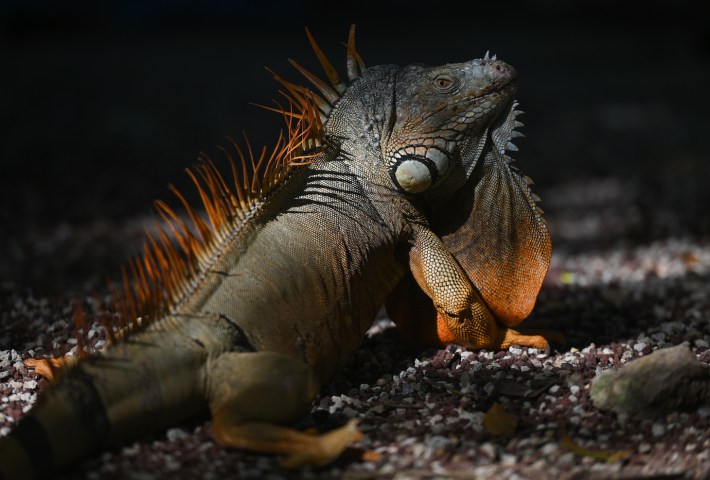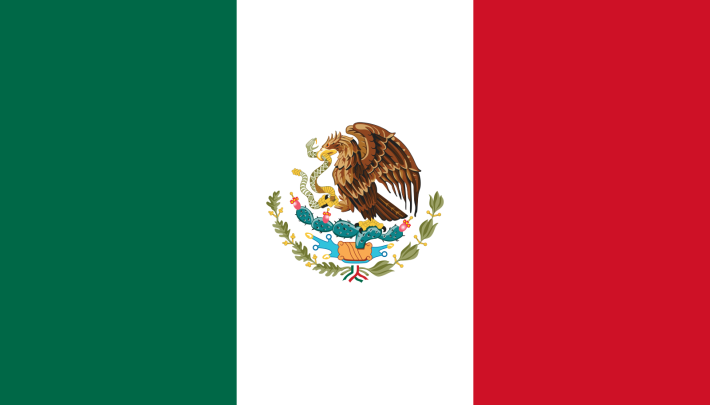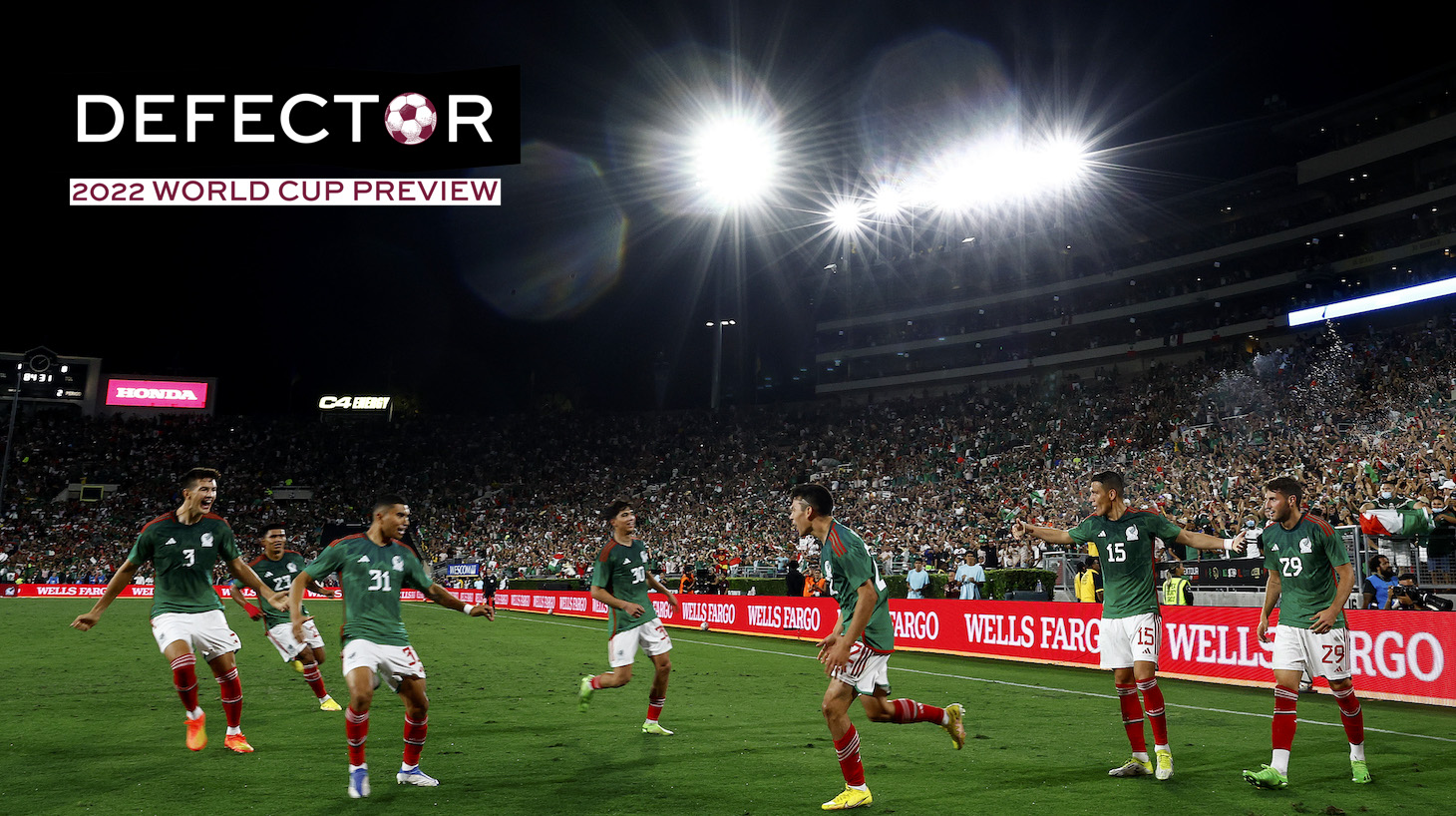It’s almost time for the 2022 World Cup. To help get you ready, we will be providing you with precious information about every team in the tournament. You can read all of our World Cup previews here.
Mexico is stuck in an extended holding pattern. The clearest evidence of this is the national team's 28-year hunt for the quinto partido, the fifth game. For going on seven consecutive World Cups, El Tri has made it out of the group stage. And for seven consecutive World Cups, they have lost in the first knockout match.
The allure of the fifth game isn't simply the difference between 16 and eight. It's the difference between a ceiling and the sky. It's the difference between stasis and movement. It's the difference between mediocrity and success. Coming into any given World Cup, Mexico fans don't expect their team to win the whole thing. That would obviously be unrealistic. But what fans would like to see is a little progress, something new to look forward to, reason to believe that maybe El Tri could make a run into the deep part of the tournament where excitement is at its highest and margins are at their thinnest, and a single good break or performance could carry Mexico somewhere truly special. That is what the quinto partido is, and it's what Mexico has repeatedly failed to achieve.
So is this the year they get there? It feels unlikely. If anything this Mexico team seems like it will struggle to even get to the customary fourth game in the round of 16. Mexican soccer as a whole is a mess. The generation that held so much promise, the one represented by the likes of Carlos Vela, Javier Hernández, and Giovani dos Santos, has come and gone, their time now seen as mostly a disappointment. The subsequent generations, the ones that make up the bulk of the current squad, are full of solid professionals but are worryingly short on difference-makers. The talent development process in the country seems stagnant. Probably this has to do with the broader soccer scene in and around the country.
On one hand, it's great that Liga MX is a big, reputable, rich competition that has proven its ability over the years to take gifted kids and turn them into outstanding players. On the other, the league is not doing so much producing nowadays, hence the lack of national team stars or even star prospects. And because Liga MX's big clubs have a lot of money, it's easier for them to shun interest from the superior European leagues, preventing the potential studs Mexico still does develop from testing and honing themselves alongside and against the very best.
The competition aspect plays out in other ways, too. International competition is where Mexican soccer looks especially bad. A little of this comes at club level, where Liga MX clubs have been steadily losing ground to MLS franchises in CONCACAF's Champions League. In a tournament the country used to pride itself on holding a vice grip on, MLS clubs have found more and more success in recent years, regularly making it deep in the tournament and finally winning the thing earlier this year. But even more galling is in international play. The U.S.'s rise as the continent's preeminent talent factory, at least in the eyes of the big European leagues, has coincided with Mexico's fall in promising youngster production. This fact has been felt on the pitch, too, where Mexico has failed to beat the USMNT in four tries over the course of this young decade.
And the impact of CONCACAF on Mexico's fortunes isn't limited to just the U.S. The story there is more complicated, in that it goes in both directions. In one direction, you have the USMNT sending more players to Europe who are proving they belong at the top, and you also have a rapidly improving Canada, which finished above Mexico (and the U.S. for that matter) in World Cup qualifying this cycle. In the other direction, you have the platoon of pushovers in Central America and in the Caribbean. Together, it means that Mexico isn't particularly threatened by CONCACAF's lower and middle classes, making World Cup qualification still pretty much automatic even for a mediocre El Tri, and yet the country is also losing ground on its two competitors at the top of the confederation. It makes for a strange combination of incentives, neither of which really seem to be pushing Mexico forward.
And improvement should be Mexican soccer's number one priority. Everything that's often said about the U.S. being soccer's sleeping giant that's proving curiously difficult to wake is at least just as true about Mexico. Mexico has a huge population, a huge economy, and—something it has over the U.S.—a long-established tradition of being nuts about the sport. On paper, Mexico should be vying for Latin American supremacy with Brazil and Argentina, not falling behind in a race with the U.S. and fucking Canada.
What Mexico needs is a shakeup. And a World Cup is a great forum for one. Maybe Qatar will offer a positive shakeup, and this team, benefitting from low expectations, plays loose and free and breaks the curse by earning a spot in the quarterfinals, in doing so reinvigorating Mexican soccer. But maybe it's a negative shakeup, and El Tri confirms the feelings that it's going backwards by failing to get out of the group for the first time since 1978, which might lead to a much-needed reevaluation of where the country is headed. Whatever it is, El Tri needs something, because the Mexico of today is far from the Mexico that could be.
Who Is Their Main Guy?
The ideal Mexico lineup features an impressive, Europe-tested attacking trio, the strongest line in the team. Unfortunately, the roster Mexico will take to Qatar will not be ideal. Missing from that best XI will be Wolverhampton Wanderers striker Raúl Jiménez and Sevilla winger Jesús Corona. Both forwards have been dealing with significant injuries. Corona has already been ruled out of the World Cup, and while Jiménez is still hoping to get healthy enough in the coming days to accept a call-up, he will be far from peak form even if he does go to Qatar. That leaves Napoli winger Hirving Lozano as the lone member of the trio who'll be there to lead Mexico's attack.
Lozano is a fitting face of this underwhelming Mexico. A few years ago, when he was tearing up the Eredivisie with PSV, "Chucky" was the country's great hope to become the national team's next legitimate star. His big transfer to Napoli in 2019 was supposed to mark his arrival onto the big stage. It mostly hasn't worked that way.
I should clarify: Lozano is a really good player. He has played a lot for Napoli over the past few years, and has been pretty good in that stretch. Napoli at the moment is having a dream start to the season, and Lozano, when healthy, is usually a starter in this ascendent Napoli. His skill set makes him a good compliment for the players around him. Leaving the subtle stuff to his more refined Azzurri teammates, Lozano plays with the sprint button permanently squeezed. He runs into space to receive the ball and then runs when he gets it, straight past whoever is in his way, and thumps in a shot as soon as he sees the whites of the goalkeeper's eyes. Acceleration, dribbling, crossing, and scoring are what comprise his game, and in a team that asks of him those and only those things, he can be a very useful piece.
As good of a player as that makes Chucky, it also puts a relatively hard ceiling on his career. Napoli and Mexico fans probably hoped that Lozano, now 27 years old, would've developed into more of a protagonist than a compensatory cog at this point. Sure, he's usually a starter for Napoli this season, but he's the clear weak link in a forward line alongside two other shooting stars, Victor Osimhen and Khvicha Kvaratskhelia. He's struggled with injuries over the years, and hasn't performed all that well when asked to lead teams at club and international level. His best role is probably as a rotation option for a big team. That's hardly some damning indictment of his abilities, but as arguably the best Mexican player of his generation, it does speak to why Mexico fans wish they had a more star-like star.
Nevertheless, Lozano will be Mexico's main attraction in Qatar. The team's ability to get him the ball in space where he can take on defenders will likely mark how successful the attack will be.
Who Is Their Main Non-Scoring Guy?
Edson Álvarez today is more or less where Hirving Lozano was a few years ago. Álvarez has spent years in the Eredivisie and starred for one of the best clubs in the country. Having bolstered his reputation as a talent with elite potential, he is now on the cusp of a move to one of Europe's big leagues, where he can finally test himself against the best.
Álvarez is a highly prized defensive midfielder. His defensive talents—blocking space, marking runs, tackling, winning headers—are overwhelming and make an unmistakable impact on the game. At Ajax, one of the most adventurous attacking teams in the world, Álvarez is often Ajax's only true defensive specialist. It is his ability to surveil huge amounts of space that lets his forward-minded teammates in midfield and even in defense charge ahead with abandon, knowing he's got their backs. Not only is Álvarez fantastic off the ball, he's even plenty capable with it as well. He is a high-volume, high-accuracy passer who doesn't so much progress play forward as he keeps it circulating from one side of the pitch to another, so that the more incisive players can get the ball and make something happen.
But for as fluid and imperious as Álvarez always looks for Ajax, his performances are much more erratic for Mexico. At Ajax, the midfielder is surrounded by a whole lineup of better, more threatening players who monopolize the attention of the opposing defense. With Mexico, he becomes the don of the midfield and thus the focus of the opposition's attention. He tends to struggle when he doesn't have as much possession and unharried space in which to choose and execute his passes, or when he is tasked with being more creative and progressive on the ball.
Álvarez's peak as a player will be marked by how well he's able to shore up those deficits of his game, whether he proves capable of adapting to teams that don't dominate quite as comprehensively as Ajax does in the Eredivisie. Over this past summer, Chelsea tried to pry him from Ajax with a €50 million bid, which Ajax declined. How Álvarez performs in Qatar could determine whether or not a team like Chelsea comes back for him next summer.
Where's The Beef?
Which teams or players does Mexico not like? Do Mexico's players like each other? We investigate their potential enemies.
The obvious answer here is the U.S. There's actually a not-insanely-unfeasible scenario where the U.S. and Mexico meet in Qatar, too. If one of the two teams wins its group while the other finishes second, and if both then win in the round of 16, then the two CONCACAF giants would play one another in the quarterfinals. It's not the most likely outcome of course, but it would be an incredible spectacle if these two countries both realized their dreams of winning a knockout game and then had to play each other for a spot in the semis.
But to look beyond the obvious a little, I'd like to point out a different rival that we already know Mexico will in fact meet: Argentina, the favorites in Group C. Argentina and Mexico aren't exactly rivals, though they have played a lot over the years. This record includes two matchups in World Cups this century: a 2–1 extra-time win for Argentina in 2006's round of 16, and a 3–1 Argentine win at the same stage four years later.
While Mexico only has pleasant associations for Argentina, recalling those two round of 16 losses should be a sore subject for Mexico. In some ways, Argentina is what Mexico wishes it could be. Mexico has nearly three times the population of Argentina, and its GDP is more than twice as large. With resources like that, it's Mexico, not Argentina, that should be challenging Brazil as the best soccer country in the Western Hemisphere.
Obviously skill in soccer isn't decided entirely by a country's number of people and amount of wealth, otherwise Uruguay wouldn't be what it is. But there is a strong relationship between size and success, and it does demonstrate Mexico's underachievement. For proof, Mexico only needs to look to Argentina, which has done much more with less. When Mexico hosted the World Cup in 1986, and watched Diego Maradona take his country on a heroic run to immortality, it got to see what it looks like when a serious soccer country comes to town. If Argentina makes its superiority felt again in this tournament, Mexico will have to face up to a dispiriting reality all over again.
Most Likely To Go David Ospina Or James Rodríguez Mode
Who is Mexico's best candidate for a breakout performance that earns them a career-changing transfer? Might this potential post-tournament transfer go well, like when Colombia's James Rodríguez went to Real Madrid after starring in the 2014 World Cup? Or could it go poorly, like when Colombia's David Ospina went to Arsenal after starring in the 2014 World Cup?
Diego Lainez is a 22-year-old phenom who has all the talent in the world. When on his game, he's a player your eyes are immediately drawn to. He is flashy, tricky, and exudes confidence and creativity. Watch one of his highlight compilations and you'd be certain you were looking at one of the most sensational young talents in the world.
Unfortunately, Lainez is also already a massive disappointment. His incredible talent has been evident for years, and it's what got him a high-profile transfer from Liga MX's Club América to La Liga's Real Betis in 2019, when he was just 18 years old. Since then, Lainez does not seem to have developed at all. He still flashes all that ability during the brief spells he finds himself on the pitch, which these days usually only comes when he's playing with Mexico, but he's yet to earn a solid role for himself in Europe. As evidence that it just wasn't working out for him at Betis, Lainez is currently on loan to Braga in Portugal. But he's had just as hard a time finding minutes there as he was in Spain.
Despite all his struggles since hopping the pond, Lainez remains Mexico's most gifted attacker. He probably won't start in Qatar, but if the team needs a second-half substitute who can enliven a match, Mexico will probably turn to Lainez. An impressive couple substitute appearances could get him back on track with Braga, which could see a team in a bigger league taking a chance on him.
He is, after all, still only 22, and plenty of hyped teens found it difficult making good on that promise right away before everything clicked in their 20s. Of course, Lainez could wind up being another Giovani dos Santos, an electric player whose starring performances with the national team kept him cycling between prominent European clubs even though he never really transferred his great outings with Mexico into consistent play for his club. Because of that, Lainez is just the kind of high-risk, potentially high-reward player who often goes boom or bust after a good World Cup.
David Ospina Probability Score: 117.7
James Rodríguez Probability Score: 47.6
Fun Geographical Fact
Wikipedia says Mexico ranks first in the world in reptile biodiversity, with 707 different species found there. Here is one regal-ass iguana who lives in the Parque Zoológico del Centenario, in Merida, Mexico:

Good Flag Or Bad Flag?

Great flag.
Good Anthem Or Bad Anthem?
Anthem is fine.
Notable Moment In World Cup History
HAHAHAHAHAHAHA EAT SHIT!
How Can They Win The World Cup?
Mexico starts its World Cup in the best possible fashion, beating Poland 2–1, immediately putting itself in prime position to qualify out of the group. Buoyed by the result in the first match, El Tri plays an uninspired Argentina to a hard-fought scoreless draw. In the final match of the group stage, with passage into the round of 16 already secured, the Mexicans pour on the style and crush Saudi Arabia, 4–0. Argentina settles for a draw in the other group-ender, and so Mexico claims the top spot.
The knockout round is where the tournament starts in earnest. Mexico has a tough foe in the round of 16, meeting Spain, who hasn't looked particularly great so far but still poses a serious challenge as the runner-up in Group E. Nevertheless, the Spaniard's lack of tooth sees them flub numerous chances, while Raúl Jiménez, making his first start after working himself back into shape post-injury, scores the match's only goal.
Next comes revenge. The U.S. managed to best the Netherlands in their round of 16 match, and so the quarterfinal is an all CONCACAF affair. Aaron Long gets and early red card when he intentionally and nonsensically handles a Chucky Lozano shot that wasn't even on target. Jiménez scores the penalty, and later gets a second off a set-piece before halftime. The U.S. fights bravely to get back into the match, but can't find the breakthrough. In stoppage time, Mexico is awarded another penalty, which substitute Andrés Guardado intentionally misses to preserve the dos a cero scoreline, ruining forever the Yanks' favorite chant.
In the semifinal, Mexico meets a Brazil team missing Neymar, who is suspended after receiving two yellow cards in the quarterfinals, both of them for diving. Without their leader, Brazil falls, 1–0. England awaits in the final. The Three Lions have played amazing soccer all tournament, blowing out every opponent. But the pressure of bringing it home is overwhelming, and every single Englishman shits himself—literally. Mexico wins in a route, 4–0.
When the final whistle blows, manager Gerardo Martino can hardly believe it. He can't even bring himself to shout or leap for joy, he just stands there on the sideline, grinning and looking around. Finally, as his team lines up to accept their winners' medals, it begins to really hit him. He's done it! The happiness erupts forth now, and Martino finds himself singing in a loud voice the Argentina national anthem as white and sky-blue confetti falls all around him. "We did it, boss! I knew we could!" He turns around. It's Lionel Messi, beaming with pride, tears in his eyes, and wraps his arms around Martino. The sight of Messi so happy somehow feels like an even bigger deal than winning the final itself.
Martino gently cups Messi's neck in his hands. "It didn't work with Barcelona, or the last time with the national team, but I told you we'd do it this time, didn't I Leo? And look at us now!" As Martino takes Messi back into his arms, he begins to notice something off. Leo? Sky-blue confetti? But I'm coaching Mexi—as the country name enters his brain, Martino jolts awake with a start.
"Everything alright, boss?" says Memo Ochoa, who is sitting in Martino's row's aisle seat. "You were out for a while," Ochoa continues, "and you started to make some funny noises a minute ago. Hey, I hope it was a good dream, and that it had us winning the World Cup! Only good thoughts from here on out, just like you said." Martino, still shaking off the grogginess, tries to twist his lips into a smile, and nods. He turns to the airplane window at his side, and looks out upon the miles and miles of desert below as the flight nears its destination.






